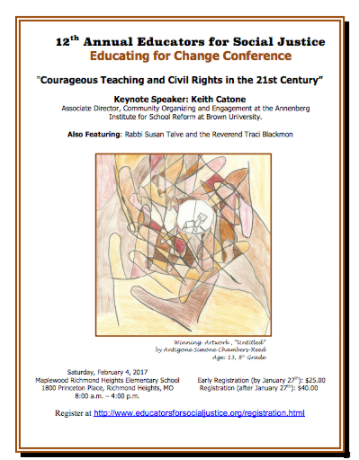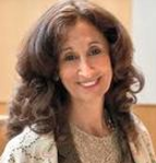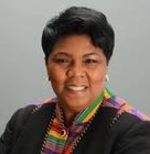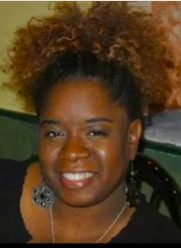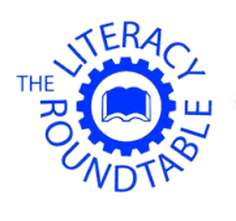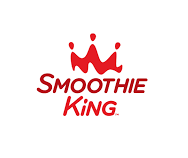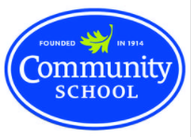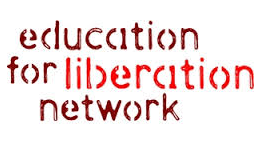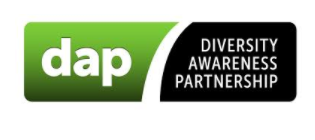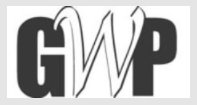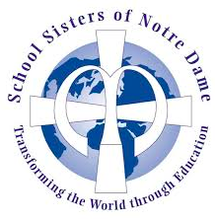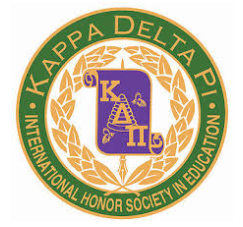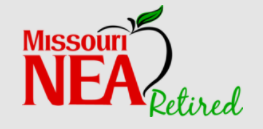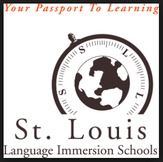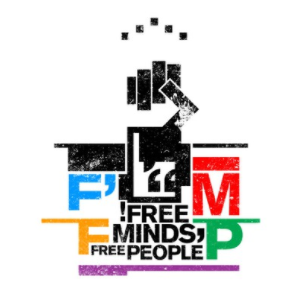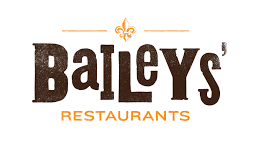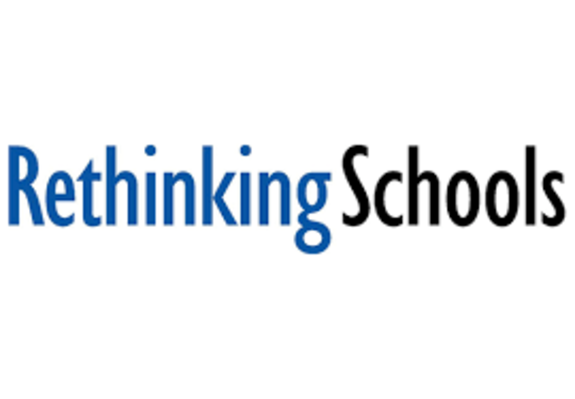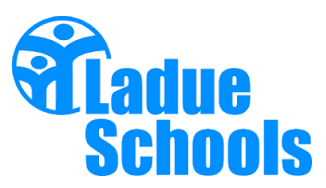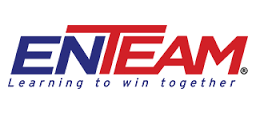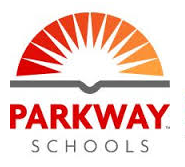8:30-9:50 a.m.
Alice Bloch: Using Movement to Create a Peaceful Classroom Environment, room 229
This workshop demonstrates how teachers can use creative dance techniques to help students develop and improve their skills in peaceful interaction. They will learn how to use mirroring, group shaping, and to move peacefully in space with basic hip hop choreography. Through these activities and discussion, participants will reinforce the notion that by behaving peacefully, they are actively contributing to a positive environment, not just in the classroom, but also in our communities.
Michelle Marie Brady: Tending to Teacher: Self-Care for Educators, room 242
The demands placed on educators grow every school year. It is easy to become overwhelmed with the quantity of tasks that need to be accomplished each day. Self-care is no longer a luxury. It is essential if you’re going to be your best professional self.
Linda Collins Ph.D.: Teaching Missouri's Slave Codes/Black Codes and African American Resistance: The first 100 Years: 1804-1904, room 225
The workshop includes a presentation of the historical timeline (1 hour) and of active teacher preparation of lesson plans (30 minutes) based on the materials learned during the workshop. Examples of black resistance include: York (the Lewis & Clark Explorer), Freedom Lawsuits in the 1840's, Dred Scott Lawsuit, Black Missouri Civil War Soldiers, Creation of Lincoln University, Formation of Sumner High School, Protest about African-American dehumanization, after the St. Louis World's Fair (1904). Historically-based handouts will be given, along with samples of pre-existing digital lesson plans from the National Park Service.
Adelaide Lancaster & Laura Horwitz, Advancing Equity Through Parent-Educator Partnerships: Stories from the We Stories Community, room 217
Parent-Educator partnerships can be powerful forces for change! In this session, we will hear some reflections from parents within the We Stories community about the progress and impact of equity efforts and the role that parent/educator connections have played. We will then think together about more ways we can increase and optimize the opportunities for these powerful collaborations.
We Stories is a non-profit organization focused on helping families strengthen their conversations about race and racism and also band together to support of regional racial justice efforts. In just two years, We Stories has galvanized more than 640 families across 67 zip codes and formed innovative partnerships with local schools, libraries and organizations such as Educators for Social Justice! We believe that by engaging, aggregating and leveraging typically disengaged constituents we can help to shift the regional political will for change. We encourage our families to not just increase their civic engagement but also incorporate and apply anti-racism principles in their practices.
Melissa Reed, Ph.D. & Dr. Heather Caswell: Teaching Empathy...One Book At A Time, room 216
Recent research indicates that academics and empathy need not be viewed as mutually exclusive choices. Modeling and fostering empathy in the classroom can actually improve academic achievement. Participants will learn how to make a story come to life for children so that they can make connections and recognize feelings of story-book characters leading to empathy. In addition, participants will leave with a booklist and lesson ideas for teaching empathy.
Paya Sample: Igniting Students’ Curiosity Through the Use of Picture Books, room 219
Educators have the power to promote an appreciation for diverse people and cultures of the world through social justice literature. Using this literature in an inquiry lesson allows students opportunities to wonder and ask meaningful questions as their empathy and concern for others grows. This interactive workshop offers participants a framework for developing a process for inquiry-based learning that empowers students to take control of their learning.
Dr. Gladys Smith: Running on Empty: Combating Compassion Fatigue for Educators and Administrators, room 226
This workshop helps educators recognize compassion fatigue and burnout in themselves and colleagues and to identify self-care skills to work with students who may be experiencing stress or trauma.
Shonta Smith, Ed.D. and Carletta Washington, Ed.D.: Culturally Responsive Teaching: How to Bridge the Cultural Disconnect, room 218
During this workshop, educators and practitioners strengthen the capacity to self-reflect; overcome stereotype threat; examine micro-aggressions, unconscious bias, power, and privilege; and assess the impact it has on educating our students. Participants learn how to meet students where they are, develop strategies and techniques that enhance the teaching and learning process, and create a plan of action to fully implement culturally responsive teaching.
9:00-9:50 a.m.
Stacy Butz: Critical Literacy: Using Picture Books to Create Authentic Conversations in the Classroom, room 239
Literacy is more than reading and writing. It is inherently social, cultural, and political. As educators, don’t we want to teach our students to question and challenge the world around them so they become stronger citizens? Critical literacy is not only a non-traditional type of pedagogy, it is a different worldview that transforms teaching and the way students and educators see and interact with the world. Critical conversations cross lines of culture, gender, race and class. They allow students to engage critically with the texts they read, as well as with the world around them. These conversations lead to an interest in literacy and a desire to use literacies in meaningful ways. The hope is that this type of instruction will yield stronger readers and stronger citizens. This workshop will allow you to examine picture books and engage with other educators to create a lesson to use in your classroom immediately.
Genevieve Caffrey: Empowering Problem-Solvers through the Exploration of Controversial Current Events, room 238
From Nazis in Charlottesville to transgender bathroom laws to immigration debates, the news is always filled with controversy and confusion. Children have a keen awareness of these events, but do not have the knowledge or skills to interpret how the issues affect their lives and the lives of others. Teachers can support their students to become social justice-oriented problem solvers by guiding them through current events in meaningful, effective ways. This workshop will provide research, strategies, and resources to guide teachers in responding to controversial current events in their classrooms. We will do a mock lesson involving a teacher-prepared lesson and deliberation.
Luzkarime Calle Díaz: Peace Education in the Colombian Context: Challenges in a Post-conflict Scenario, room 240
Colombia has endured an armed conflict for more than 50 years. Structural violence has been therefore naturalized and made part of everyday life in both rural and urban contexts. In consequence, symbolic violence is oftentimes overlooked. However, the country is currently undergoing a historical transition. The armed guerrilla group FARC (Colombian Revolutionary Armed Forces) recently signed a peace accord with the Colombian government to end violent actions, turn over their weapons, and become a political party. In this particular scenario, Peace Studies are taking central stage in the education field. Government institutions as well as academia are making big efforts to incorporate peace education into school curricula and social projects in order to restore a society that has been profoundly injured.
This workshop presents some examples of Peace Education projects in Colombia as a way to start dialogue with attendees about peace and social justice education experiences in their local context. In addition, a new look at symbolic violence is presented; one that has been overlooked for years in the Colombian context. Attendees will have the opportunity to engage in a brief analysis of a typical classroom interaction to discover a teacher’s fundamental role in helping build a socially-just and peaceful society through the use of language.
Nancy Lewis: Creating an Equitable Classroom Community: The Role of Affirmations and Counter-Narratives, room 232
What are your most valuable methods for welcoming each child into your classroom with open arms? Students bring their best selves to school, and as educators, it is our responsibility to accept them and love them just as they are. Dr. Ronald Ferguson, a Harvard professor, researches education and racial achievement gaps. According to Ferguson, “There is much that does not meet the teacher’s eye but nonetheless affects how ambitiously and effectively students learn.” The difficulty begins within ourselves and within the mental models we hold. We cannot effectively teach students until we have a clear awareness of our own biases. In this workshop we will explore how to recognize adult behavior patterns that perpetuate systemic inequity and then develop strategies for using counter-narratives and affirmations to create a positive classroom climate.
Jos Linn: Citizenship 101: Making Your Voice Heard on Issues You Care About, room 235
Come learn how to be an effective advocate of the issues you care about most. Learn skills that will help you both inside and outside the classroom to become a powerful agent of change. Through the lens of ending poverty in America, learn effective techniques in speaking to, writing to, and meeting with lawmakers. Join us to become a powerful advocate for change!
10:00-10:50 a.m.
Cryslynn Billingsley: Genius Hour Learning: A School Wide Legacy, room 217
For the past five years, Parkway Northeast Middle School has been engaged in finding ways to create legacy through Genius Hour learning. Genius Hour is a movement that allows students to explore their own passions and encourages creativity in the classroom. It provides students a choice in what they learn during a set period of time during school. At Northeast Middle, Genius Hour focuses on the theme of “legacy” which allows students to find ways to create legacy for their family, school, community, or for their own future. Educators participating in this session will explore how culturally relevant pedagogy transfers from the classroom to a school-wide initiative, with Genius Hour as a prime example.
April Fulstone: Art as Protest: Intertwining Visual Art and Literacy in a Human Rights Unit, room 219
Studying and creating art as protest gives students a powerful and authentic vehicle to think and learn about human rights issues in our world today. Participants will hear from two middle school teachers who use essential questions to bridge art and literacy curricula in a culminating year-end project.
Rick and Cathy Hasler: Understanding Gifted Kids and Their Unique Needs, room 215
Come hear from a gifted educator, Rick Hasler, and Cathy Hasler, a child psychologist, who will help teachers understand the unique social-emotional and academic needs of gifted kids no matter their socio-economic background or age. Teachers will have the chance to learn practical strategies that can be effective in helping students who are intellectually intelligent but may not have the emotional coping mechanisms that one might think. The presenters come with a wealth of experience from working with kids of all ages.
Mike Hazelton, Nikki Goldfeder & Jenn Sebold: Leveraging Student Leadership: Student-Led Staff Development on Micro-Aggressions, room 226
We will bring a team of students to share the development sessions they created for the staff of Northeast Middle School about micro-aggressions. They will share the process of how they came up with their plan and will take participants through some of the activities they created.
Meredith Labadie: Actively Engaging Young Students in Critical Literacy and Social Justice, room 238
In this session, participants will learn ways that even the youngest students can be actively engaged in critical literacy and social justice work through classroom read-alouds of diverse children’s literature. Participants will learn how critical literacy development can be scaffolded across a school year and across multiple themed text sets based on students’ interests and relevant social issues. Student work samples and lessons will be shared, and participants will learn techniques for engaging students through discussion, writing, drawing, drama, and poetry. The presenter will model several of these techniques, with participants getting to actively participate in a social justice focused read-aloud. Teachers will leave the session with specific strategies to take back to their classrooms to engage students in critical literacy and social justice.
Jos Linn: Citizenship 101: Making Your Voice Heard on Issues You Care About, room 235
Come learn how to be an effective advocate of the issues you care about most. Learn skills that will help you both inside and outside the classroom to become a powerful agent of change. Through the lens of ending poverty in America, learn effective techniques in speaking to, writing to, and meeting with lawmakers. Join us to become a powerful advocate for change!
Heba Mostafa: The Role of Classroom Talk in Students' Identity Development and Multicultural Awareness, room 241
International and multicultural literature highlight different ways of “being” in the world. How can this literature help students develop cross-cultural understanding? Heba Mostafa will share the ways literature discussion groups supported students in exploring their own sense of identity and their expanding awareness of their own and others’ cultures. She will share four patterns found in analysis of student talk and invite participants to discuss ways these patterns can inform classroom instruction.
Julie Williams: Where do I start? The Basics of Sociology and the 4 Main Social Constructs, room 239
In starting the semester for my Women and Gender Studies students, I have found that the key for them to understand the overarching issues in the course is to look at how Race, Class, Gender, and Sexuality are all constructed by society. I will walk attendees through my first week of lessons on the Basics of Sociology, along with how perception plays such a key role in how people understand the world. Attendees will work through the materials, and I will also provide a list of other sources and materials that can be used in their own classrooms.
Administrators: Conversation with each other about implementing social justice at the district level, Library - room 254
Administrators are welcome to have a conversation together about implementing social justice at the district level.
2:00-2:50 p.m.
Rick and Cathy Hasler: Understanding Gifted Kids and Their Unique Needs, room 215
Come hear from a gifted educator, Rick Hasler, and Cathy Hasler, a child psychologist, who will help teachers understand the unique social-emotional and academic needs of gifted kids no matter their socio-economic background or age. Teachers will have the chance to learn practical strategies that can be effective in helping students who are intellectually intelligent but may not have the emotional coping mechanisms that one might think. The presenters come with a wealth of experience from working with kids of all ages.
Jane McGuire: Fostering Diversity and Empathy Through Classroom Libraries, room 217
This presentation will discuss how to evaluate and update your classroom library to empower students and create an environment of acceptance and empathy.
Gholdy Muhammed: Historically Responsive Literacy in Practice: A Four Layered Approach, room 229
In this session following the keynote address, Dr. Gholdy Muhammad will present a lesson plan framework to put culturally and historically responsive literacy instruction into practice. This framework is helpful across grade levels and content areas to advance literacy development for students. This framework is especially helpful for designing meaningful pedagogy around the learning goals of 1) literacy skills and proficiencies 2) identity development 3) intellectualism and 4) criticality/social justice.
Michaela Schweiger: Mindfulness and Meditation, room 216
We will focus on meditation and mindfulness in class, strategies for teachers to incorporate breathing and mindfulness into classes, and participate in guided breathing exercises.
LaRhonda Wilson and Haley Biehl: Buddy Circles: A Model of Peer Support to Promote Self-Awareness and Partnership for Change, room 235
Buddy Circles are an approach to advocacy and mentorship, in which students are given a safe space for acknowledging their strengths and vulnerabilities, while providing the opportunity to learn from, and partner with, their peers. These conversations foster a strong sense of self as students equip themselves and others with a toolkit that includes acceptance, inclusion, and sincerity, and have proven to act as a predecessor for anti-bullying campaigns and empower students to actively and positively engage their peers and community.
Administrators: Conversation with each other about implementing social justice at the district level, Library - room 254
Administrators are welcome to have a conversation together about implementing social justice at the district level.
Alice Bloch: Using Movement to Create a Peaceful Classroom Environment, room 229
This workshop demonstrates how teachers can use creative dance techniques to help students develop and improve their skills in peaceful interaction. They will learn how to use mirroring, group shaping, and to move peacefully in space with basic hip hop choreography. Through these activities and discussion, participants will reinforce the notion that by behaving peacefully, they are actively contributing to a positive environment, not just in the classroom, but also in our communities.
Michelle Marie Brady: Tending to Teacher: Self-Care for Educators, room 242
The demands placed on educators grow every school year. It is easy to become overwhelmed with the quantity of tasks that need to be accomplished each day. Self-care is no longer a luxury. It is essential if you’re going to be your best professional self.
Linda Collins Ph.D.: Teaching Missouri's Slave Codes/Black Codes and African American Resistance: The first 100 Years: 1804-1904, room 225
The workshop includes a presentation of the historical timeline (1 hour) and of active teacher preparation of lesson plans (30 minutes) based on the materials learned during the workshop. Examples of black resistance include: York (the Lewis & Clark Explorer), Freedom Lawsuits in the 1840's, Dred Scott Lawsuit, Black Missouri Civil War Soldiers, Creation of Lincoln University, Formation of Sumner High School, Protest about African-American dehumanization, after the St. Louis World's Fair (1904). Historically-based handouts will be given, along with samples of pre-existing digital lesson plans from the National Park Service.
Adelaide Lancaster & Laura Horwitz, Advancing Equity Through Parent-Educator Partnerships: Stories from the We Stories Community, room 217
Parent-Educator partnerships can be powerful forces for change! In this session, we will hear some reflections from parents within the We Stories community about the progress and impact of equity efforts and the role that parent/educator connections have played. We will then think together about more ways we can increase and optimize the opportunities for these powerful collaborations.
We Stories is a non-profit organization focused on helping families strengthen their conversations about race and racism and also band together to support of regional racial justice efforts. In just two years, We Stories has galvanized more than 640 families across 67 zip codes and formed innovative partnerships with local schools, libraries and organizations such as Educators for Social Justice! We believe that by engaging, aggregating and leveraging typically disengaged constituents we can help to shift the regional political will for change. We encourage our families to not just increase their civic engagement but also incorporate and apply anti-racism principles in their practices.
Melissa Reed, Ph.D. & Dr. Heather Caswell: Teaching Empathy...One Book At A Time, room 216
Recent research indicates that academics and empathy need not be viewed as mutually exclusive choices. Modeling and fostering empathy in the classroom can actually improve academic achievement. Participants will learn how to make a story come to life for children so that they can make connections and recognize feelings of story-book characters leading to empathy. In addition, participants will leave with a booklist and lesson ideas for teaching empathy.
Paya Sample: Igniting Students’ Curiosity Through the Use of Picture Books, room 219
Educators have the power to promote an appreciation for diverse people and cultures of the world through social justice literature. Using this literature in an inquiry lesson allows students opportunities to wonder and ask meaningful questions as their empathy and concern for others grows. This interactive workshop offers participants a framework for developing a process for inquiry-based learning that empowers students to take control of their learning.
Dr. Gladys Smith: Running on Empty: Combating Compassion Fatigue for Educators and Administrators, room 226
This workshop helps educators recognize compassion fatigue and burnout in themselves and colleagues and to identify self-care skills to work with students who may be experiencing stress or trauma.
Shonta Smith, Ed.D. and Carletta Washington, Ed.D.: Culturally Responsive Teaching: How to Bridge the Cultural Disconnect, room 218
During this workshop, educators and practitioners strengthen the capacity to self-reflect; overcome stereotype threat; examine micro-aggressions, unconscious bias, power, and privilege; and assess the impact it has on educating our students. Participants learn how to meet students where they are, develop strategies and techniques that enhance the teaching and learning process, and create a plan of action to fully implement culturally responsive teaching.
9:00-9:50 a.m.
Stacy Butz: Critical Literacy: Using Picture Books to Create Authentic Conversations in the Classroom, room 239
Literacy is more than reading and writing. It is inherently social, cultural, and political. As educators, don’t we want to teach our students to question and challenge the world around them so they become stronger citizens? Critical literacy is not only a non-traditional type of pedagogy, it is a different worldview that transforms teaching and the way students and educators see and interact with the world. Critical conversations cross lines of culture, gender, race and class. They allow students to engage critically with the texts they read, as well as with the world around them. These conversations lead to an interest in literacy and a desire to use literacies in meaningful ways. The hope is that this type of instruction will yield stronger readers and stronger citizens. This workshop will allow you to examine picture books and engage with other educators to create a lesson to use in your classroom immediately.
Genevieve Caffrey: Empowering Problem-Solvers through the Exploration of Controversial Current Events, room 238
From Nazis in Charlottesville to transgender bathroom laws to immigration debates, the news is always filled with controversy and confusion. Children have a keen awareness of these events, but do not have the knowledge or skills to interpret how the issues affect their lives and the lives of others. Teachers can support their students to become social justice-oriented problem solvers by guiding them through current events in meaningful, effective ways. This workshop will provide research, strategies, and resources to guide teachers in responding to controversial current events in their classrooms. We will do a mock lesson involving a teacher-prepared lesson and deliberation.
Luzkarime Calle Díaz: Peace Education in the Colombian Context: Challenges in a Post-conflict Scenario, room 240
Colombia has endured an armed conflict for more than 50 years. Structural violence has been therefore naturalized and made part of everyday life in both rural and urban contexts. In consequence, symbolic violence is oftentimes overlooked. However, the country is currently undergoing a historical transition. The armed guerrilla group FARC (Colombian Revolutionary Armed Forces) recently signed a peace accord with the Colombian government to end violent actions, turn over their weapons, and become a political party. In this particular scenario, Peace Studies are taking central stage in the education field. Government institutions as well as academia are making big efforts to incorporate peace education into school curricula and social projects in order to restore a society that has been profoundly injured.
This workshop presents some examples of Peace Education projects in Colombia as a way to start dialogue with attendees about peace and social justice education experiences in their local context. In addition, a new look at symbolic violence is presented; one that has been overlooked for years in the Colombian context. Attendees will have the opportunity to engage in a brief analysis of a typical classroom interaction to discover a teacher’s fundamental role in helping build a socially-just and peaceful society through the use of language.
Nancy Lewis: Creating an Equitable Classroom Community: The Role of Affirmations and Counter-Narratives, room 232
What are your most valuable methods for welcoming each child into your classroom with open arms? Students bring their best selves to school, and as educators, it is our responsibility to accept them and love them just as they are. Dr. Ronald Ferguson, a Harvard professor, researches education and racial achievement gaps. According to Ferguson, “There is much that does not meet the teacher’s eye but nonetheless affects how ambitiously and effectively students learn.” The difficulty begins within ourselves and within the mental models we hold. We cannot effectively teach students until we have a clear awareness of our own biases. In this workshop we will explore how to recognize adult behavior patterns that perpetuate systemic inequity and then develop strategies for using counter-narratives and affirmations to create a positive classroom climate.
Jos Linn: Citizenship 101: Making Your Voice Heard on Issues You Care About, room 235
Come learn how to be an effective advocate of the issues you care about most. Learn skills that will help you both inside and outside the classroom to become a powerful agent of change. Through the lens of ending poverty in America, learn effective techniques in speaking to, writing to, and meeting with lawmakers. Join us to become a powerful advocate for change!
10:00-10:50 a.m.
Cryslynn Billingsley: Genius Hour Learning: A School Wide Legacy, room 217
For the past five years, Parkway Northeast Middle School has been engaged in finding ways to create legacy through Genius Hour learning. Genius Hour is a movement that allows students to explore their own passions and encourages creativity in the classroom. It provides students a choice in what they learn during a set period of time during school. At Northeast Middle, Genius Hour focuses on the theme of “legacy” which allows students to find ways to create legacy for their family, school, community, or for their own future. Educators participating in this session will explore how culturally relevant pedagogy transfers from the classroom to a school-wide initiative, with Genius Hour as a prime example.
April Fulstone: Art as Protest: Intertwining Visual Art and Literacy in a Human Rights Unit, room 219
Studying and creating art as protest gives students a powerful and authentic vehicle to think and learn about human rights issues in our world today. Participants will hear from two middle school teachers who use essential questions to bridge art and literacy curricula in a culminating year-end project.
Rick and Cathy Hasler: Understanding Gifted Kids and Their Unique Needs, room 215
Come hear from a gifted educator, Rick Hasler, and Cathy Hasler, a child psychologist, who will help teachers understand the unique social-emotional and academic needs of gifted kids no matter their socio-economic background or age. Teachers will have the chance to learn practical strategies that can be effective in helping students who are intellectually intelligent but may not have the emotional coping mechanisms that one might think. The presenters come with a wealth of experience from working with kids of all ages.
Mike Hazelton, Nikki Goldfeder & Jenn Sebold: Leveraging Student Leadership: Student-Led Staff Development on Micro-Aggressions, room 226
We will bring a team of students to share the development sessions they created for the staff of Northeast Middle School about micro-aggressions. They will share the process of how they came up with their plan and will take participants through some of the activities they created.
Meredith Labadie: Actively Engaging Young Students in Critical Literacy and Social Justice, room 238
In this session, participants will learn ways that even the youngest students can be actively engaged in critical literacy and social justice work through classroom read-alouds of diverse children’s literature. Participants will learn how critical literacy development can be scaffolded across a school year and across multiple themed text sets based on students’ interests and relevant social issues. Student work samples and lessons will be shared, and participants will learn techniques for engaging students through discussion, writing, drawing, drama, and poetry. The presenter will model several of these techniques, with participants getting to actively participate in a social justice focused read-aloud. Teachers will leave the session with specific strategies to take back to their classrooms to engage students in critical literacy and social justice.
Jos Linn: Citizenship 101: Making Your Voice Heard on Issues You Care About, room 235
Come learn how to be an effective advocate of the issues you care about most. Learn skills that will help you both inside and outside the classroom to become a powerful agent of change. Through the lens of ending poverty in America, learn effective techniques in speaking to, writing to, and meeting with lawmakers. Join us to become a powerful advocate for change!
Heba Mostafa: The Role of Classroom Talk in Students' Identity Development and Multicultural Awareness, room 241
International and multicultural literature highlight different ways of “being” in the world. How can this literature help students develop cross-cultural understanding? Heba Mostafa will share the ways literature discussion groups supported students in exploring their own sense of identity and their expanding awareness of their own and others’ cultures. She will share four patterns found in analysis of student talk and invite participants to discuss ways these patterns can inform classroom instruction.
Julie Williams: Where do I start? The Basics of Sociology and the 4 Main Social Constructs, room 239
In starting the semester for my Women and Gender Studies students, I have found that the key for them to understand the overarching issues in the course is to look at how Race, Class, Gender, and Sexuality are all constructed by society. I will walk attendees through my first week of lessons on the Basics of Sociology, along with how perception plays such a key role in how people understand the world. Attendees will work through the materials, and I will also provide a list of other sources and materials that can be used in their own classrooms.
Administrators: Conversation with each other about implementing social justice at the district level, Library - room 254
Administrators are welcome to have a conversation together about implementing social justice at the district level.
2:00-2:50 p.m.
Rick and Cathy Hasler: Understanding Gifted Kids and Their Unique Needs, room 215
Come hear from a gifted educator, Rick Hasler, and Cathy Hasler, a child psychologist, who will help teachers understand the unique social-emotional and academic needs of gifted kids no matter their socio-economic background or age. Teachers will have the chance to learn practical strategies that can be effective in helping students who are intellectually intelligent but may not have the emotional coping mechanisms that one might think. The presenters come with a wealth of experience from working with kids of all ages.
Jane McGuire: Fostering Diversity and Empathy Through Classroom Libraries, room 217
This presentation will discuss how to evaluate and update your classroom library to empower students and create an environment of acceptance and empathy.
Gholdy Muhammed: Historically Responsive Literacy in Practice: A Four Layered Approach, room 229
In this session following the keynote address, Dr. Gholdy Muhammad will present a lesson plan framework to put culturally and historically responsive literacy instruction into practice. This framework is helpful across grade levels and content areas to advance literacy development for students. This framework is especially helpful for designing meaningful pedagogy around the learning goals of 1) literacy skills and proficiencies 2) identity development 3) intellectualism and 4) criticality/social justice.
Michaela Schweiger: Mindfulness and Meditation, room 216
We will focus on meditation and mindfulness in class, strategies for teachers to incorporate breathing and mindfulness into classes, and participate in guided breathing exercises.
LaRhonda Wilson and Haley Biehl: Buddy Circles: A Model of Peer Support to Promote Self-Awareness and Partnership for Change, room 235
Buddy Circles are an approach to advocacy and mentorship, in which students are given a safe space for acknowledging their strengths and vulnerabilities, while providing the opportunity to learn from, and partner with, their peers. These conversations foster a strong sense of self as students equip themselves and others with a toolkit that includes acceptance, inclusion, and sincerity, and have proven to act as a predecessor for anti-bullying campaigns and empower students to actively and positively engage their peers and community.
Administrators: Conversation with each other about implementing social justice at the district level, Library - room 254
Administrators are welcome to have a conversation together about implementing social justice at the district level.
| revised_esj_conference_program_2.24.18.pdf |
2017
12th Annual Educating for Change
Curriculum Fair
February 4th, 2017 at Maplewood Richmond Heights Elementary
2017 Program
Theme
“Courageous Teaching and Civil Rights in the 21st Century”
Featured Speakers
Recipient of 2017 Courageous Educator Award
Tamara Wells
Teacher in the Ferguson-Florissant School District
Teacher in the Ferguson-Florissant School District
•Tamara Wells is committed to transforming school culture by centering marginalized voices, ideas, and linguistic varieties.
•She created the C.H.A.T. Academy in her school. C.H.A.T. stands for “Children Having Academic Talks About languages, dialect and identity.”
•This provides an academic space for students to exchange organic dialogue about how they formed agency around their language ideologies and identified themselves as speakers in academic settings. Her daily practice is focused on raising the voices of African American youth in the St. Louis region.
•She created the C.H.A.T. Academy in her school. C.H.A.T. stands for “Children Having Academic Talks About languages, dialect and identity.”
•This provides an academic space for students to exchange organic dialogue about how they formed agency around their language ideologies and identified themselves as speakers in academic settings. Her daily practice is focused on raising the voices of African American youth in the St. Louis region.
Below is a Power Point presentation summarizing the 2017 Curriculum Conference:
Thank you, 2017 Sponsors!
Acknowledgements for 2017 Conference
|
We would especially like to recognize and thank the conference planning committee.
2017 Conference Planning Committee Jason Adams, Maplewood Richmond Heights Elementary School Marnice Anthony, University of Missouri-St. Louis Stacy Butz, Ladue School District Genevieve Caffrey, Chicago Public Schools Jason Davis, St. Louis Immersion Schools Anna Fletcher, Soulard School Carolyn Fuller, St. Louis Community College Mary Pat Gallagher, Lolly’s Place Rob Good, Ladue School District Sarah Hobson, Community Allies Mark Kasen, ABC 30 Carol Lickenbrock Fujii, Parkway School District Sarah Miller, Clayton School District Kate O’Brien, Education Consultant Jennifer Riesenmy, Ladue School District James Perkins, Special School District Nicole Post, The Community School Rebecca Rogers, University of Missouri-St. Louis Dan Stoudt, Chaminade College Preperatory Tamara Times, Community Organizer Tamara Wells, Ferguson-Florissant School DistrictTed Wohlfarth, EnTeam |
For their financial support of the 2017 Conference, we would like to sincerely thank:
Des Lee Endowment in Urban Education, University of Missouri-St. Louis Jane and Tom Mendelson Laura Fletcher Mary Pat Gallagher Michael and Mary SchiffMolly Hauk In addition, we greatly appreciate the in-kind and other direct support from: Maplewood Richmond Heights Elementary administration, faculty, and students for their support and collaboration with the 12th Annual Educating for Change Conference. Dave Bailey’s Unique Urban Restaurants for providing food for the conference. Antigone Simone Chambers-Reed, an 8th grade student, for providing the artwork featured on our conference flyer and program cover. The University of Missouri-St. Louis Campus Bookstore for generously donating bags for the conference. |

